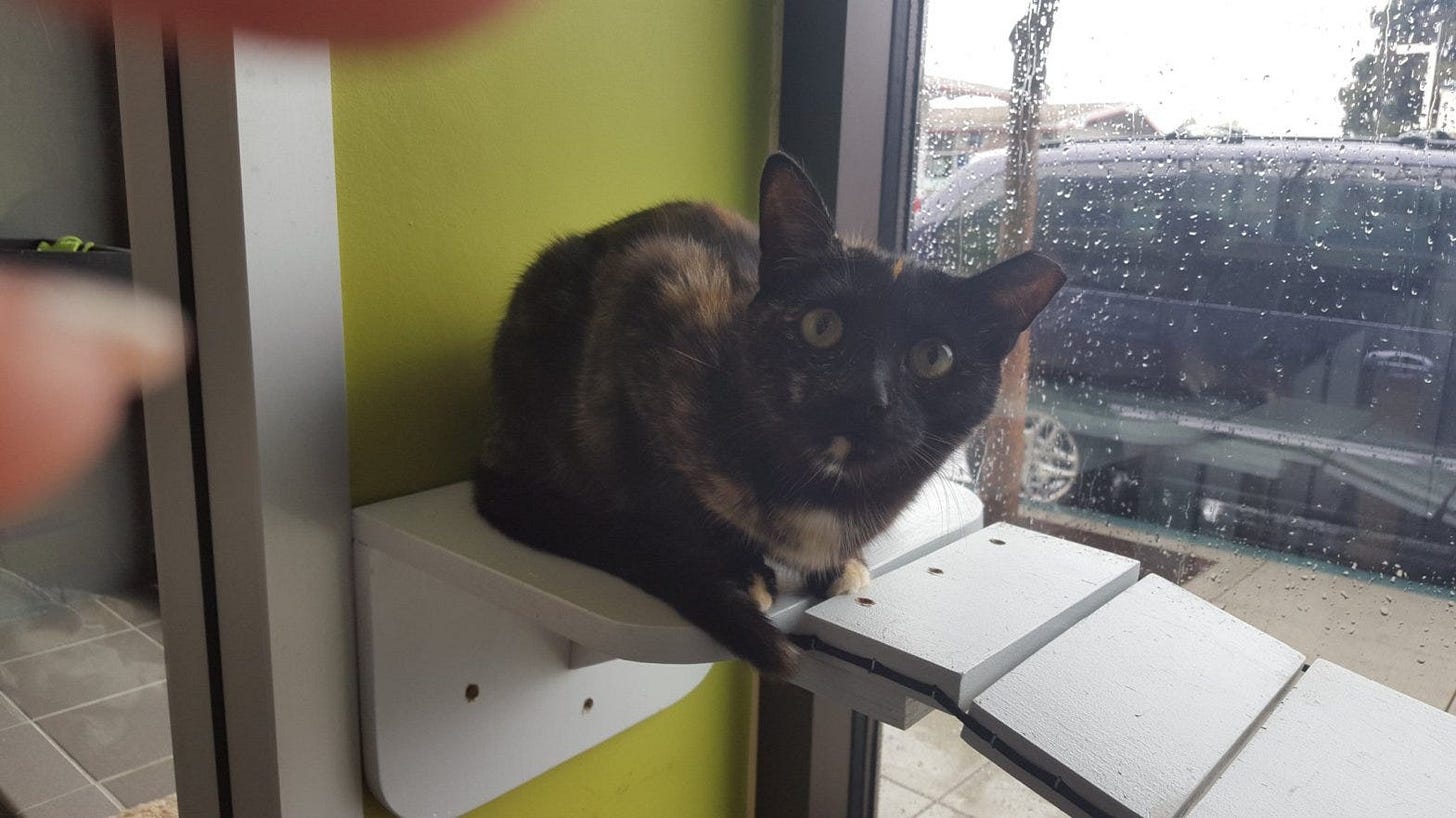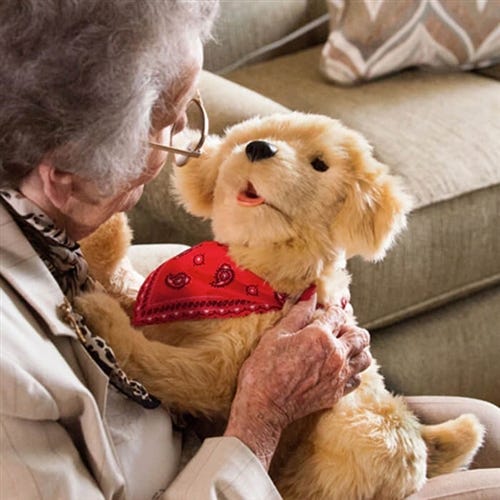Three Ideas to Consider
As You Care for Another
These articles in a recent Aging Care newsletter stood out for me, and I wanted to share them.
The first article is The Healing Power of Pets for Seniors
Owning a pet can bring elders tremendous joy and a renewed sense of purpose. No matter the type of animal, pets can have a beneficial impact on both an older adult’s mental and physical health.
Throughout our marriage, we had pets - dogs, gerbils, hamsters, fish birds, and our favorite - cats. We both loved them. There was Sami, Cookie, Casey, Kaci, and Missy. After Missy, we adopted rescue cats, Bailey and Bella. You may have met them. Bailey would sit on Dan’s lap for hours, and Bella followed him everywhere.
But dementia changed Dan - he rejected the cats and wanted to give them away for his confused reasons. That rejection particularly wounded Bella - she hid in the closet, behind the door, and under the clothes for days.
What worked well in the later days was an electronic therapy dog - like this one. The dog barked, wagged its tail, and was relatively life-like. Ruffie became Dan’s best friend. He proudly introduced Ruffie to everyone.
Since I am by myself, Bailey takes good care of me. Bella sleeps with me every night - both of them are always nearby. They are great friends.
Conversation Starters: 20 Questions to Your Elderly Parents
Our parents are the most familiar people in the world, but they can also be the most mysterious. Whether you’re completing a family legacy project or looking for things to discuss while visiting or providing daily care, it begs the question: how well do we know our elders? Who is Mom as a person? What was Dad like when he was growing up? What experiences most impacted their lives? What were their hopes, dreams, and regrets?
I didn’t know my parents in those ways. I wanted to, but they were unwilling to share themselves. I knew the facts and what they did, but not how they felt or their childhoods. Today - it’s too late. I will never have that chance.
So, my children know what I think and feel.
Dan and I met when we were twelve. We lived in the same neighborhood. Our parents were good friends. When Dan struggled with dementia, my memories helped him remember old friends and family.
The 20 questions in the article can help start that journey.
The Best Ways to Support a Caregiving Spouse
Most people have never provided care for an aging or ill loved one before, so it can be challenging to know how to help someone in this role. These tips can guide you through unfamiliar territory with your spouse and in-laws.
I used similar tips as the caregiver for Dan.
do your research
get emotional support and help when needed
set boundaries
don’t lose perspective
Caring for another person - especially a loved one - is not easy - everything people can do to help themselves manage during stressful times is a plus.
If you want to contribute to my work, consider donating to the Alzheimer’s Association. This link takes you to their website. The choice is yours.






Such a wealth of information in here Janice - thank you for sharing.
I've never heard of an electronic therapy dog before. It's interesting to know how well it worked for Dan. Thank you for the list of 20 questions Janice. I have already asked most of them but it did get me thinking.